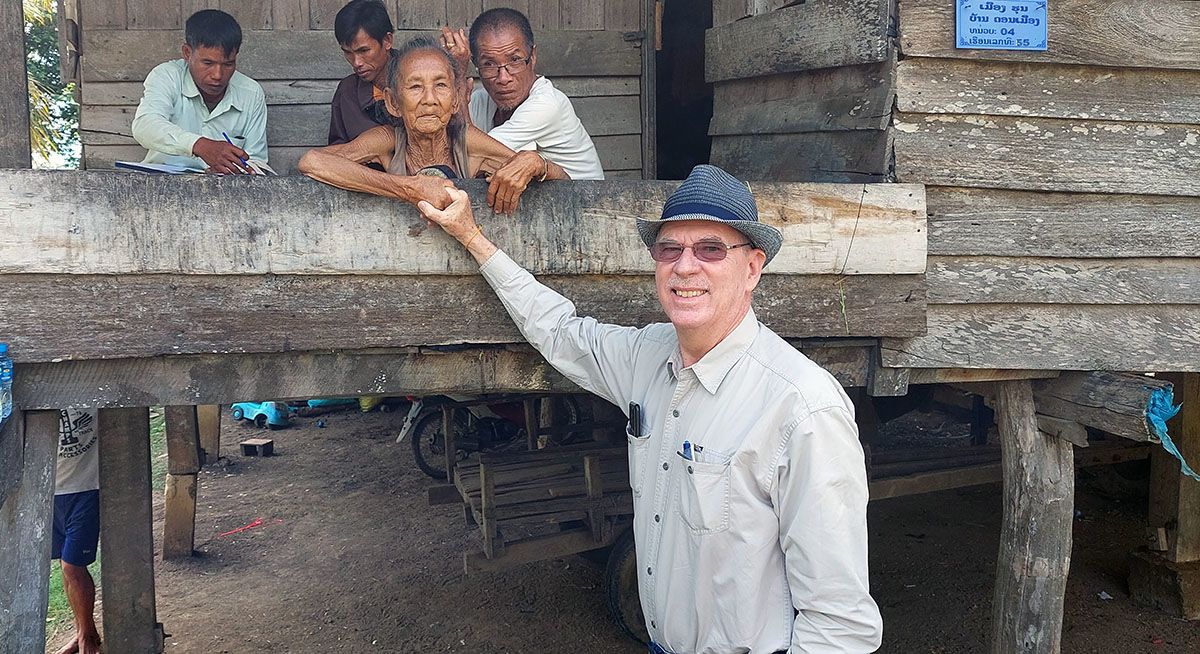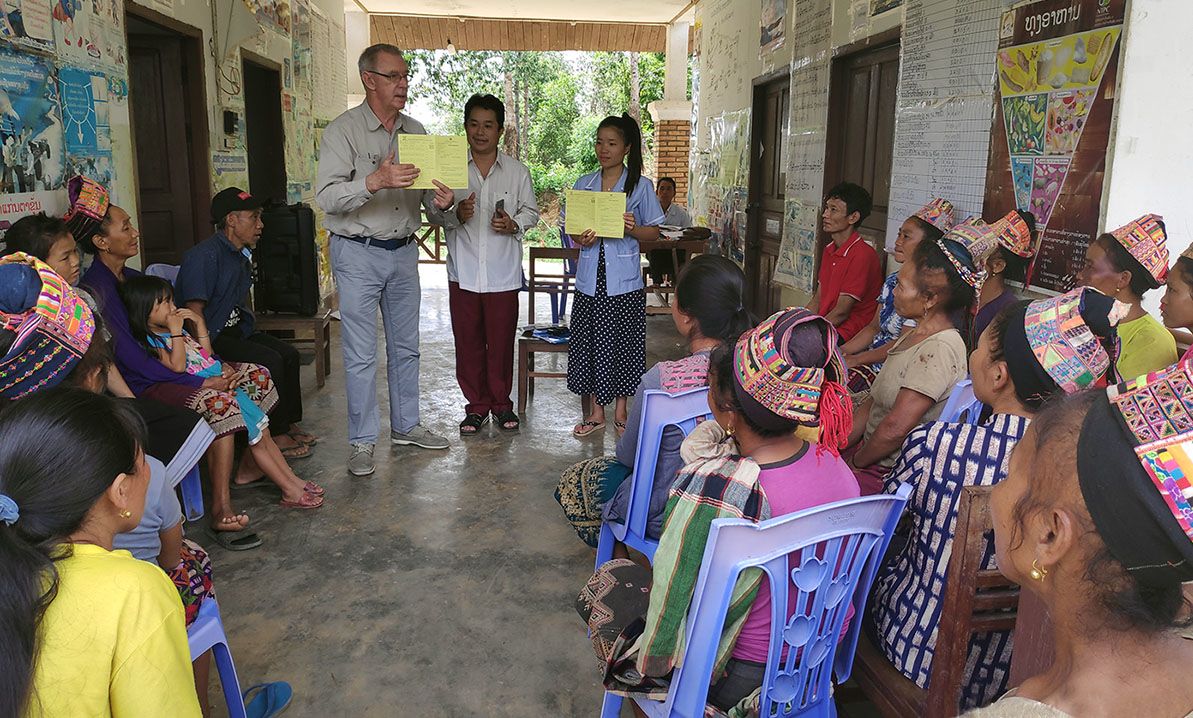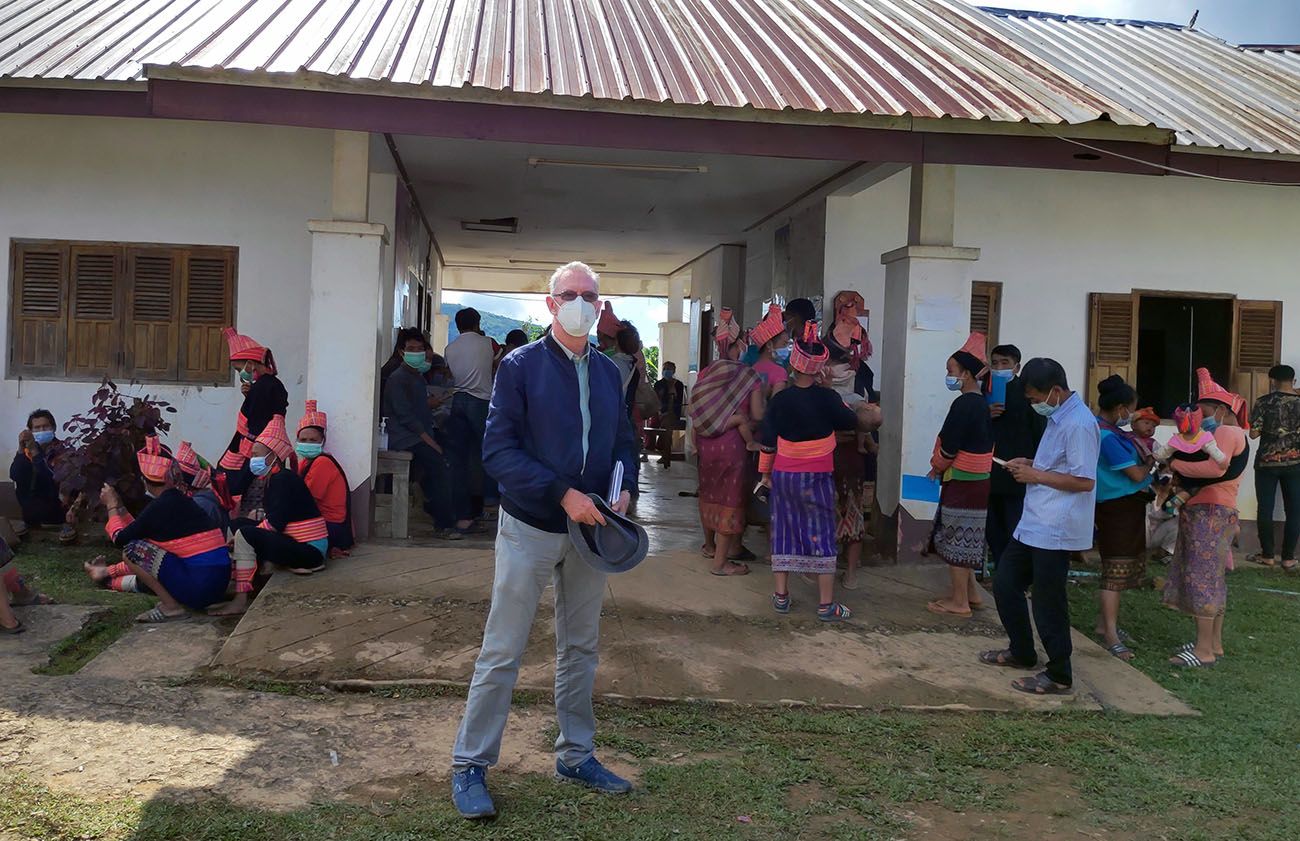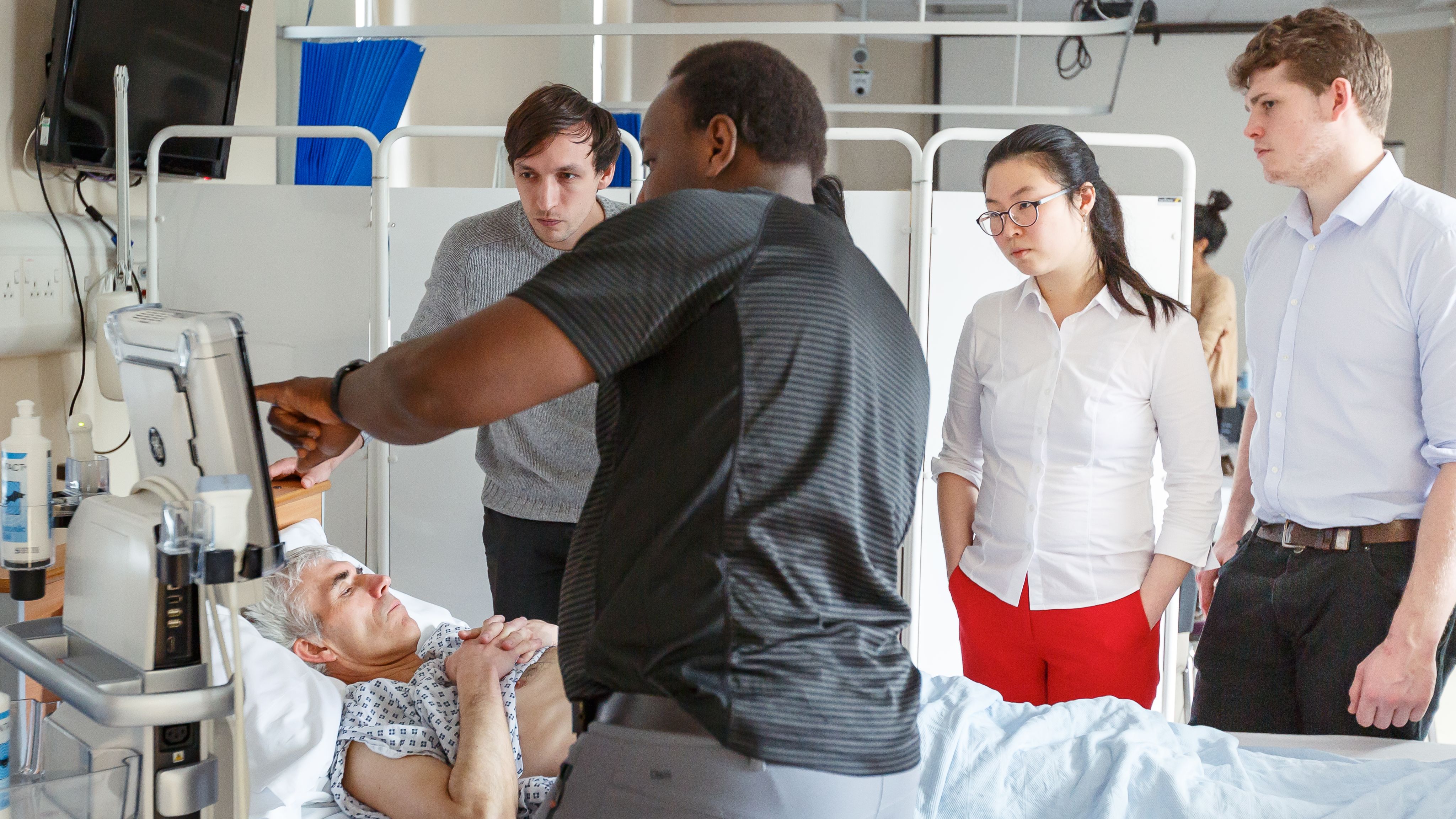Leeds at the WHO: Julian Bilous
Leeds graduate Julian Bilous is an Immunization Consultant, Global Programme for Vaccines and Immunization at the World Health Organization (WHO).

Julian Bilous in Oudomxay province, Laos, October 2022, providing a second Covid-19 vaccination for elderly people including this woman, over 100 years old, and her son, 80.
Julian Bilous in Oudomxay province, Laos, October 2022, providing a second Covid-19 vaccination for elderly people including this woman, over 100 years old, and her son, 80.
Dr Julian Bilous graduated from the University of Leeds with a Medicine degree in 1970. After more than three decades of working with the WHO, he discusses what remote communities really need from health workers.
What have you done since graduating from Leeds in 1970?
I left the UK in 1974 and went to work in Solomon Islands. I was a district medical officer for eight years in Solomon Islands with varied clinical duties including surgery, paediatrics, obstetrics anaesthetics and dealing with anything, including Tuberculosis and Malaria, in a small rural hospital with no telephone.
I then went to remote Australia and the Philippines. I had not intended a career in public health, but I took a Masters degree in public health at Queensland University in 1987 and decided this was what I wanted to do.
Countries have their own experts. They expect something over and above what they can get themselves.
What do you do with the WHO?
I joined the WHO at the Western Pacific Regional Office in Manila in 1991 and spent the next ten years working on immunization and Polio eradication. It required a lot of field work in many countries.
I provided technical support to governments by working with national colleagues throughout their countries. I helped them plan, manage and fund surveillance and vaccination campaigns. We had a good outcome inasmuch as polio was certified as eliminated in the Western Pacific Region in 2000.
I moved to WHO headquarters in Geneva in 2001 where, as immunization coordinator, the job broadened to technical guidance on strengthening routine immunization, measles elimination and the introduction of new vaccines. I continued country visits to various continents.
Although I officially retired in 2008, I have continued to work as an immunization consultant ever since by visiting many countries and providing technical support.
In the last few years I have regularly worked in Laos. I returned in 2022 and will visit again in 2023, all on WHO contract.

A Health Centre in remote Phongsaly province, Laos, 2019. Julian is helping the health centre to promote the use of home vaccination cards with village mothers.
A Health Centre in remote Phongsaly province, Laos, 2019. Julian is helping the health centre to promote the use of home vaccination cards with village mothers.
What’s in the future for global health?
I am two years older than the WHO, I have worked for the WHO for over 30 years now. I believe that the role of the WHO will continue to be essential in the future.
But, the WHO has made some highly publicized mistakes over the years, and must be seen to have learned from those mistakes.
With your expertise in immunization, what have we learned from the Covid-19 pandemic?
The global response to Covid-19 was initially not equitable. Countries at high risk did not get the best technical advice and vaccines in a timely manner. There were millions of avoidable deaths.
I hope we have learned for a global response because as John Donne told us: ‘For I am involved in mankind, therefore, send not to know for whom the bell tolls, It tolls for thee.’
Now there is a better focus on protecting vulnerable people, but many countries have never had lists of vulnerable people. However, the response to Covid-19 required identifying and listing the elderly, those with co-morbidities and pregnant women all as a priority for protection. This is a good lesson and preparation for the next pandemic.
The WHO has made some highly publicised mistakes over the years, and must be seen to have learned from those mistakes.
The other lesson is community engagement through trusted local people. Communities can be mobilized to take protective measures including vaccination provided they trust their own local source of the information.
Now that the global data is analysed, there is little difference between the effectiveness of various Covid-19 vaccine brands, which is good news for developing countries.
How can low income nations get their share of vaccines?
Gavi, the global vaccine alliance provides vaccines to many developing countries that would otherwise struggle to get the equitable benefits of immunizations that richer countries have. Gavi, supported by its core partners, provides vaccines and operational support including Covid-19 vaccines through COVAX.

2021, during the height of the Covid-19 pandemic at a remote health centre vaccinating people of a national minority group in Phongsaly province, northern Laos.
2021, during the height of the Covid-19 pandemic at a remote health centre vaccinating people of a national minority group in Phongsaly province, northern Laos.
What have we learned since the WHO was formed 75 years ago?
I have learned that, in my field, reliable expert technical support is most important. The WHO’s member states expect this.
Countries have their own experts, they expect something over and above what they can get themselves. Countries look very closely at the CV and previous experience of WHO staff and consultants who wish to advise them.
They don’t want to be sent a book, they don’t need empty slogans. They want to engage a technical expert to help them solve their problems and to help mobilize external financial support where needed.
I see my work now as helping to build up the expertise of the young national colleagues I work with, remotely and in person.
Advice for health workers

What advice do you have for other graduates working in healthcare?
Trust and respect is everything. Respect the different cultures that you work in. The people you serve may have completely different world views and they expect you to respect them.
There is no point in trying to provide public health advice to people who do not trust you. You must earn the trust and show that you have the expertise they require.
You must be innovative, anybody can read a textbook that is already out of date. Countries expect more than that — they expect the latest information from across the world.
The health of a country depends on the delivery of health services often at health centre level. Always have healthcare workers in mind, put yourself in their shoes, what clear technical and operational advice can really help them?
What did your Leeds degree in Medicine do for you?
The Leeds medical degree opened the door to paths I never expected to take, but I'm happy that I did.
Forever Leeds
312,000 alumni
197 countries
One global community
Never miss a moment
Update your details
Follow @LeedsAlumni
